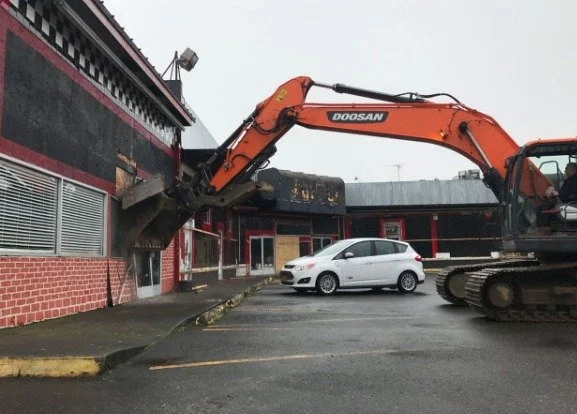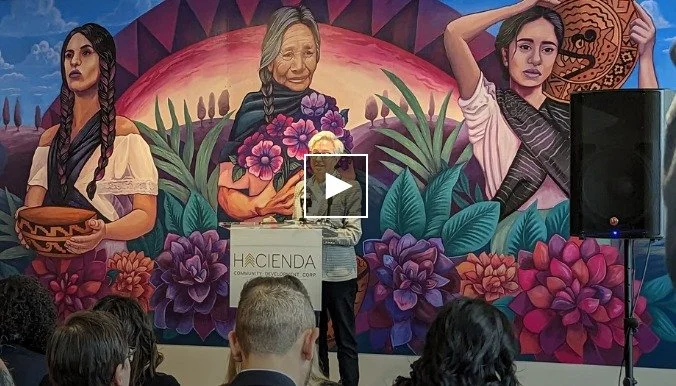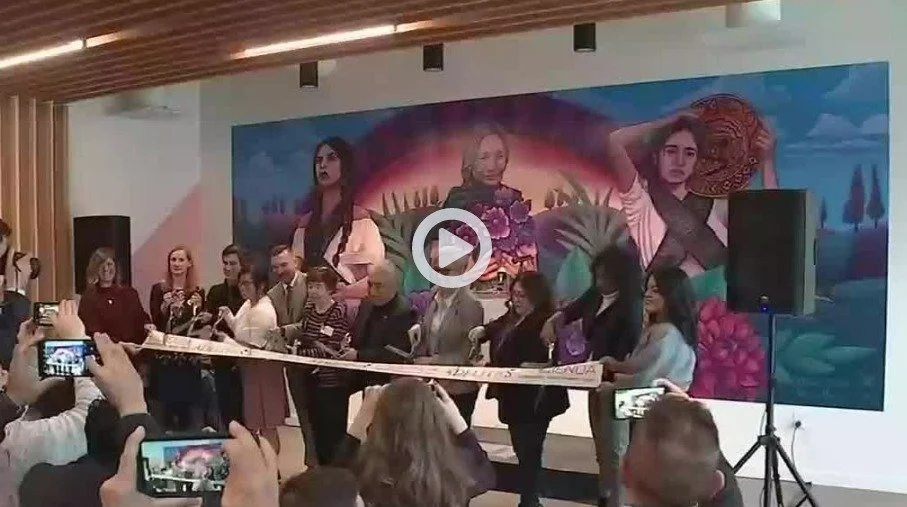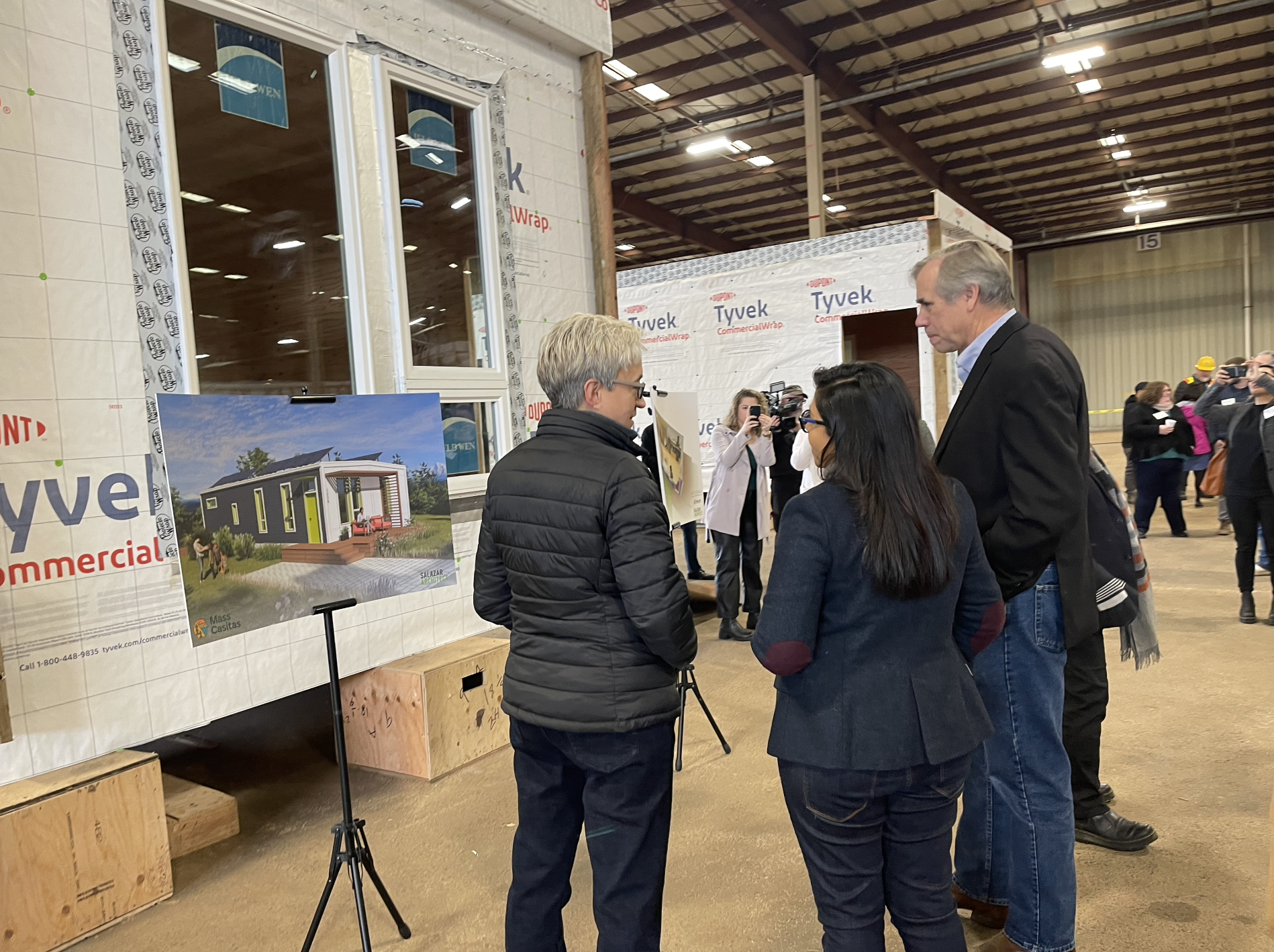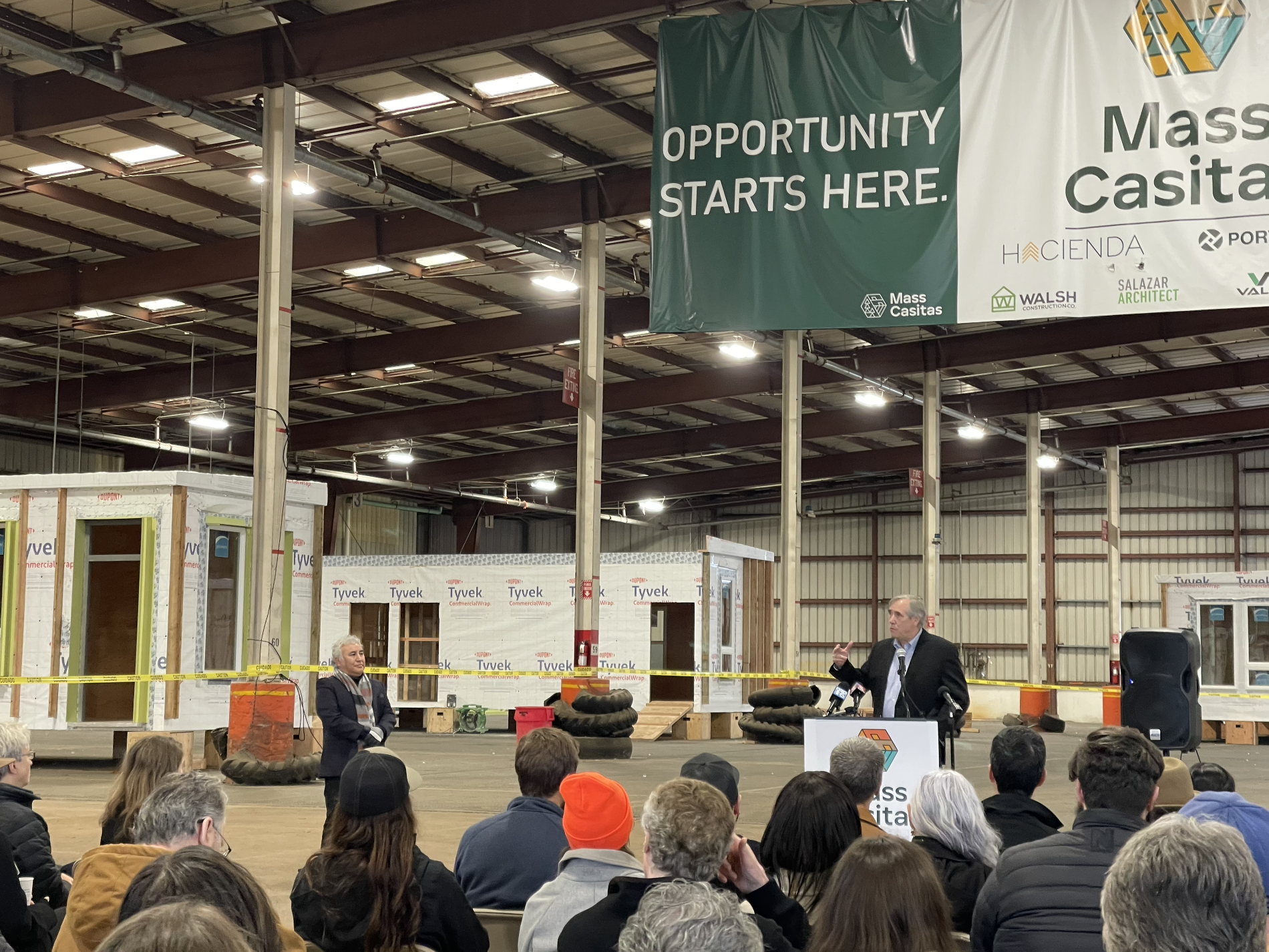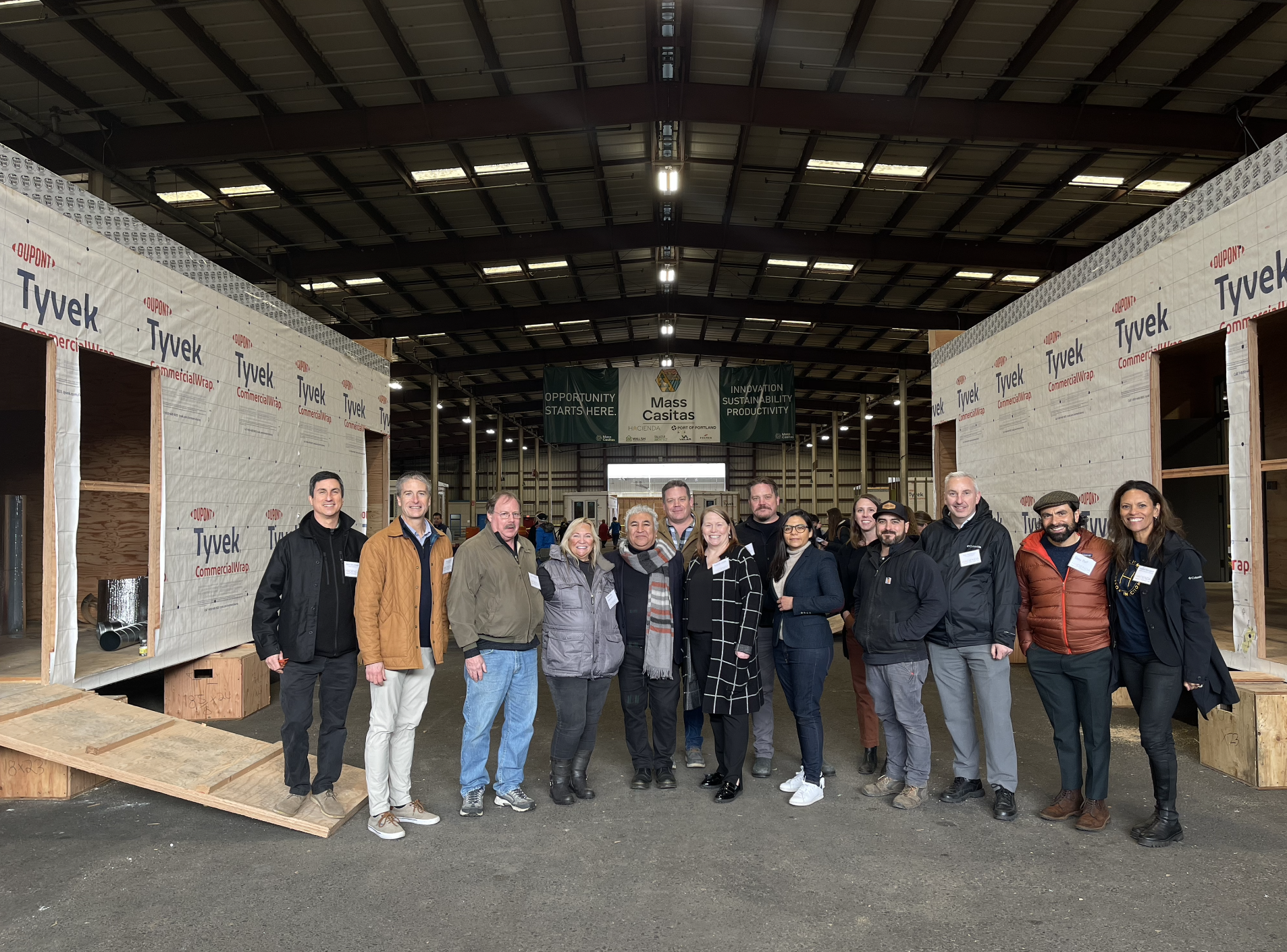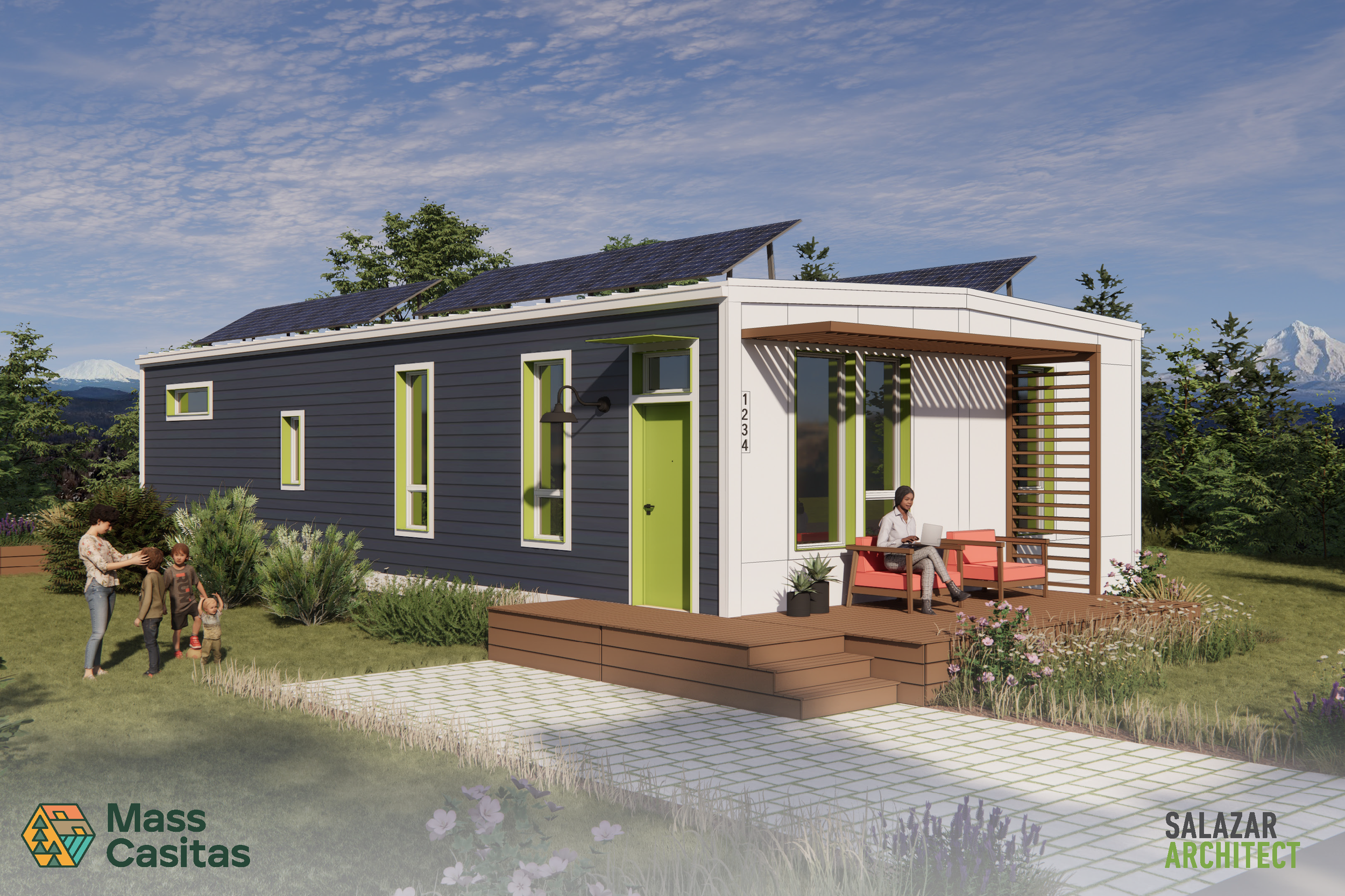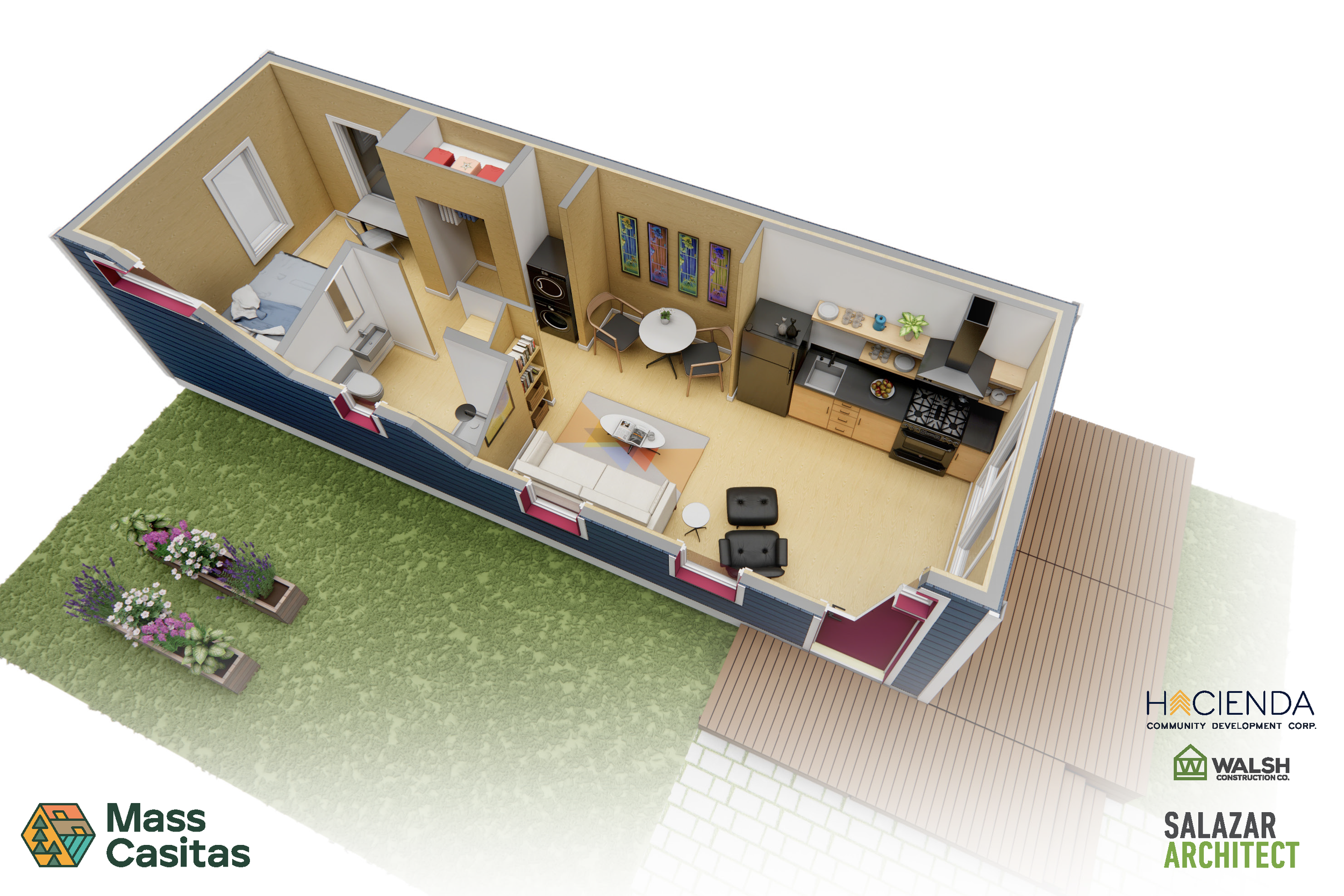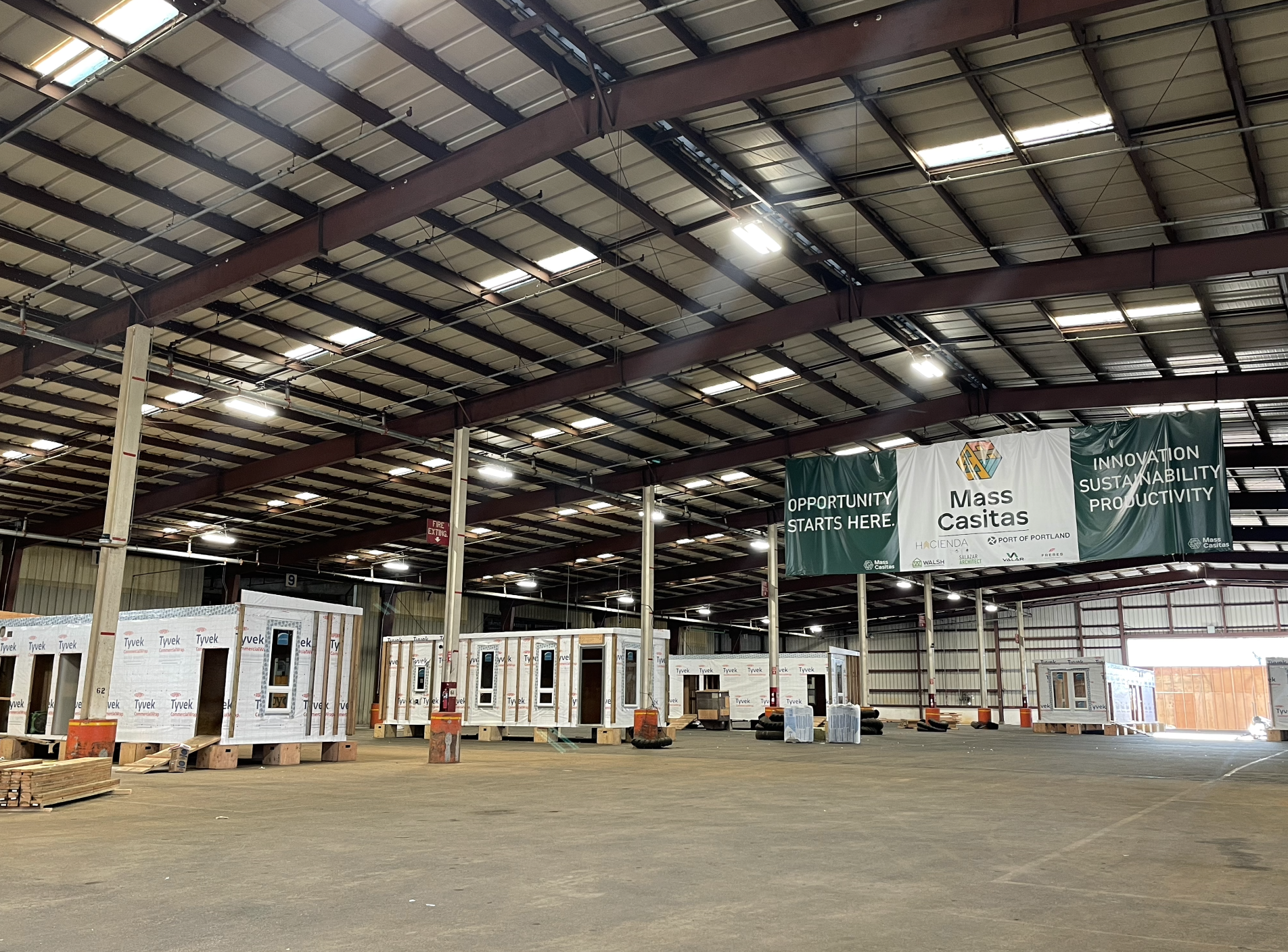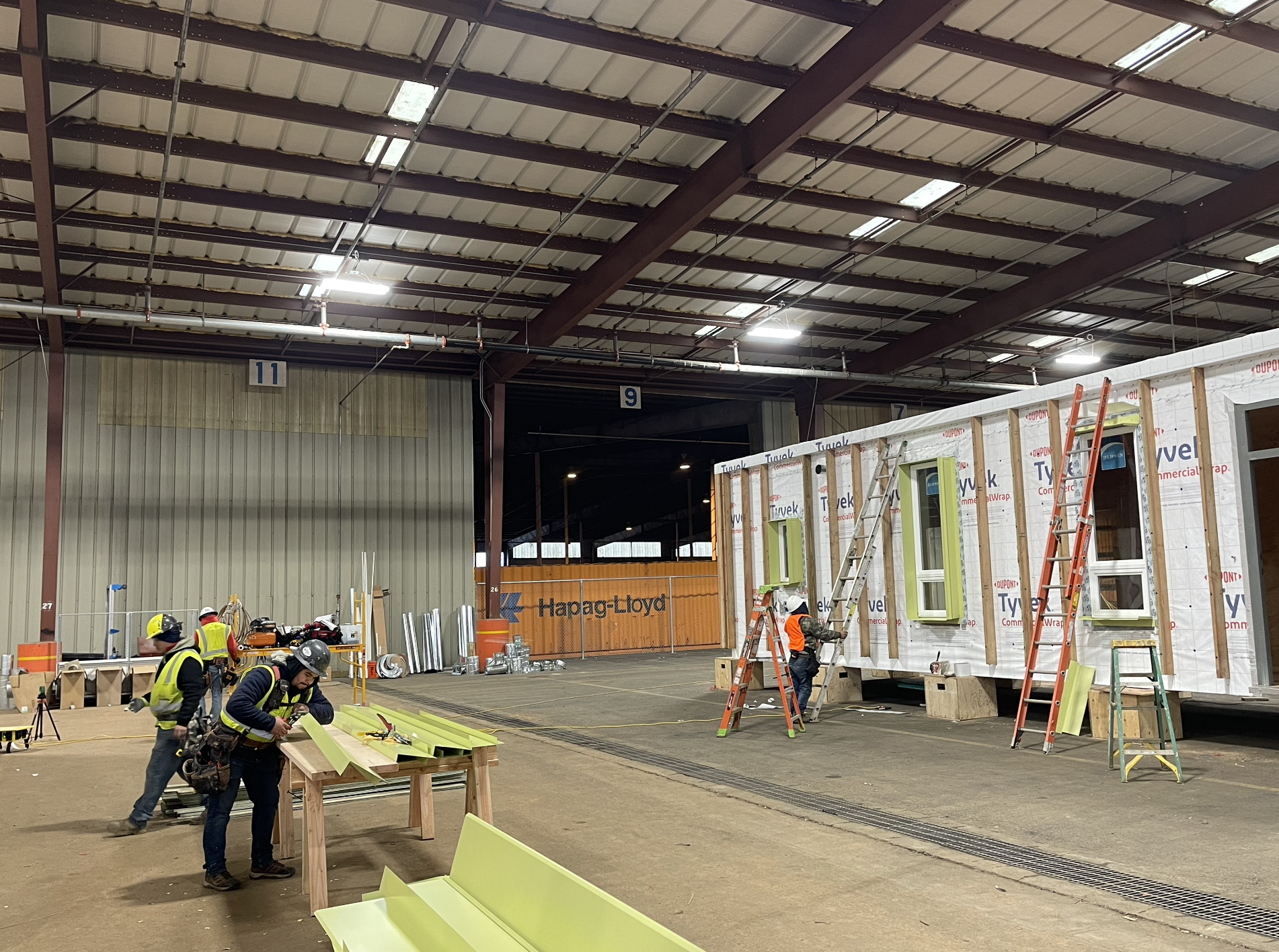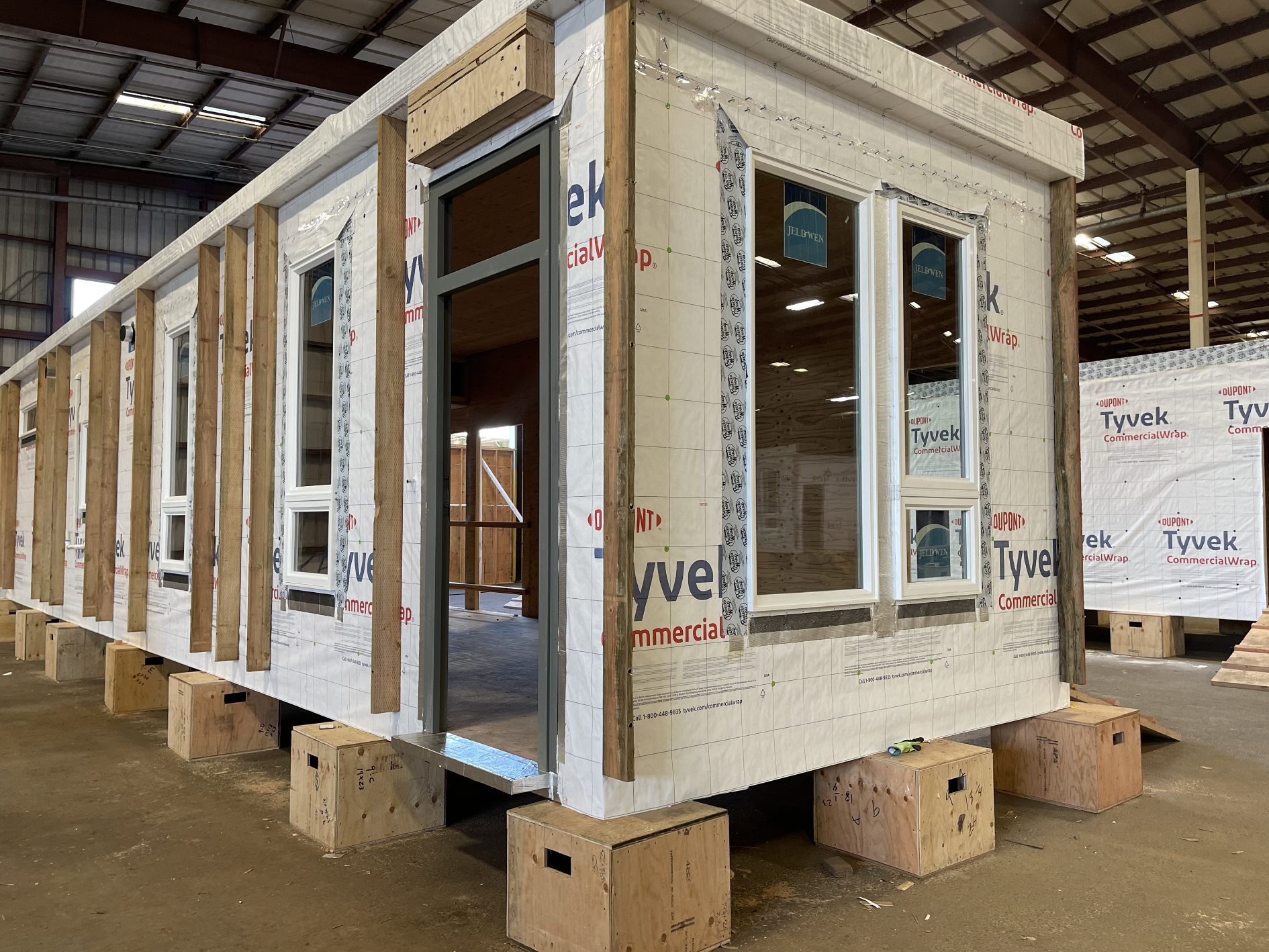We are proud to announce Chalise Fiol has been named a 2023 NACLAB Pete Garcia Community Economic Development Fellow!
The Pete Garcia Community Economic Development Fellowship is a year-long leadership training program for Latino leaders from around the country. This year, 18 professionals were selected for this prestigious program that aims to cultivate future Latino leaders.
Established in 2010, the Fellowship was developed to ensure that the next generation of Latinx leaders build practical, personal and professional skills needed to fill the increasing leadership gap in the community development field. It provides mid-career Latinx practitioners with specialized professional development training, preparing them to become strong executive director candidates at non-profits that serve Latino communities.
Chalise currently serves as Hacienda's Economic Opportunity Program Manager. Over the course of 11 years, Chalise has served communities and staff alike, sharing her expertise and dedication to creating economic opportunities for everyone. We celebrate this outstanding accomplishment. We appreciate Chalise’s dedication, passion and leadership and are grateful for her impact in our organization and community!
This year’s title program sponsor is the JPMorgan Chase Foundation with additional support from Capital One.
About NALCAB
The National Association for Latino Community Asset Builders (NALCAB) is the hub of a national network of 200 member organizations that are anchor institutions in geographically and ethnically diverse Latino communities in 45 states, Washington DC and Puerto Rico. NALCAB supports its member institutions through funding, training, research and advocacy, enabling them to invest in their communities by building affordable housing, ensuring equitable neighborhood development, supporting small business growth, and providing financial counseling on issues including credit building and homeownership. As a grantmaker and US Treasury certified CDFI lender with offices in San Antonio and Washington DC, the NALCAB Network serves hundreds of thousands of low- and moderate-income people, advancing economic equity and inclusivity in the communities we serve.
Construction is underway on six prototype homes headed to Oregon communities this summer
PORTLAND, Ore.— Inside a sprawling warehouse at the Port of Portland’s Terminal 2, a potential solution to ease Oregon’s housing shortage is swiftly taking shape. Workers are assembling six prototype modular homes using Oregon-produced mass timber that will soon house pre-selected families and individuals in four communities (Madras, Otis, Portland and Talent). Led by Hacienda CDC, the pilot project (among the first of its kind in the nation) aims to demonstrate how modular housing built with mass timber could provide a more efficient, faster and less expensive way to build housing. The pilot was spearheaded by $5 million in funding from the Oregon Legislature.
On Friday, Hacienda offered a first look at the prototype homes, called Mass Casitas, to city and state officials, including Oregon Governor Tina Kotek and Senator Jeff Merkley, community leaders, and the media at the Port of Portland’s Marine Terminal 2.
“We need more homes now to address Oregon’s urgent housing crisis, and traditional systems alone will not be enough to get the job done. Mass Casitas is innovative because we’re combining mass timber with modular single-family home construction to develop a process that could help Oregon add more high-quality housing, faster,” said Ernesto Fonseca, CEO of Hacienda.
State economists have said that Oregon has a shortage of 110,000 housing units for current residents at all income levels. To accommodate future growth, the state may need to build more than 580,000 homes by 2040. The greatest need is among residents with the lowest incomes.
“I was excited to advocate for $5 million dollars to support this vision in its infancy, and I’m thrilled today to see its first major step forward. The Mass Casitas project is proof that, together, we can act with the urgency people across our state are demanding. Bold ideas, concrete solutions, disciplined follow through. That’s how we can deliver results,” said Kotek.
The vision of Mass Casitas extends beyond housing, Fonseca said. With additional public and private investment, the model has the potential to accelerate the growth of Oregon’s mass timber industry and create new jobs — and in the process, help to revitalize former logging communities and increase economic opportunities for Oregonians, especially in rural communities and communities of color.
Visitors who toured the Mass Casitas production site on Friday saw the six prototype homes under construction. Once complete, the homes will be donated and delivered to nonprofit organizations in four Oregon communities by June 2023. The nonprofits will select which individuals and families will live in the homes.
The six prototype homes (which range in size between 1-3 bedrooms) are headed for these four Oregon communities:
1 home is going to Madras (Jefferson County); partner is Casa of Oregon
1 home is going to Otis (Lincoln County); partner is Cascade Relief Team
2 homes are going to Portland (Multnomah County); partner is Community Vision
2 homes are going to Talent (Jackson County); partner is Casa of Oregon
Following delivery of the prototypes, the Mass Casitas team will monitor how the homes perform in different climates and their utility to residents, using what they learn to improve the design, inform the production process and assess the potential of creating the units at scale.
"Mass Casitas is helping transform Terminal 2 into a site for innovation, mass timber industry transformation, and opportunity for Oregon families," said Keith Leavitt, chief trade & equitable development officer at the Port of Portland. "This project is even more evidence that mass timber can be transformative for Oregon, and it's full of opportunity for those who have been left behind, from new housing options to the creation of good-paying jobs along the timber and housing construction supply chain."
During the December 2021 special session, the Legislature allocated $5 million for Mass Casitas to the Port of Portland, which is providing the warehouse space and fund management and partnered with Hacienda, the housing organization leading the project. Other key team members are: Salazar Architect Inc. (design), Walsh Construction Co. (general contractor), VALAR Consulting Engineering (engineering), and Freres Engineered Wood (mass timber supplier/expert).
###
About Hacienda CDC
Hacienda CDC is a trusted Latino/x-led community-building organization that strengthens BIPOC and low-income communities through affordable housing and holistic services for adults, families and youth. Founded in 1986 in Portland’s Cully neighborhood, Hacienda has grown to support underserved communities that face barriers to opportunity throughout urban and rural Oregon. Through our own innovative approaches and high-impact partnerships, Hacienda develops affordable housing and provides client-centered services and programs that enable people to thrive and achieve their dreams of home ownership, entrepreneurship and education. Learn more at haciendacdc.org.
Learn more about Mass Casitas and this Innovative solution to address the housing crisis
Portland, OR - Hacienda Community Development Corporation (CDC) is pleased to announce that the first residents have moved into Las Adelitas, the organization's newest affordable housing development.
Located at the corner of Killingsworth Street and Cully Boulevard in Portland’s Cully neighborhood, Las Adelitas includes 142 affordable rental apartments and a community event space. The development is designed to meet the needs of low-income families and individuals, with a mix of efficiency, one-, two-, and three-bedroom apartments as well as amenities such as a playground, bike storage, electric vehicle car-sharing, and a solar buyback program. The complex was designed with community in mind through various community-led workshops that spoke to the needs of families and individuals.
Applications opened September 2022 and are open on a rolling basis for individuals and families that fall below 60% of the area median income.
Las Adelitas is the outcome of a 5+ year community-driven process to transform a former vacated lot that was negatively impacting the vitality of Cully. After a grassroots effort from community and various supporters, in 2015, Hacienda, Verde, and Habitat for Humanity came together to form the coalition, Living Cully to buy the property with the support of CRAFT3, Prosper Portland, Oregon Community Fund, Meyer Memorial Trust, over $50,000 donated directly from community members, and many others. In 2017 Hacienda purchased the entire property to create affordable housing that is so desperately needed.
Aptly named after feminist Mexican revolutionaries, the building brings deep social, economic and environmental benefits to the Cully community. Inspired by community design in every detail, the community also features a large-scale mural by notable artist Michelle Angela Ortiz which features Cully community members and a poem written by a local neighbor.
First resident to Las Adelitas receives keys from Ernesto Fonseca, Hacienda Chief Executive Officer
"We are thrilled to welcome the first residents to Las Adelitas," said Chief Executive Officer, Ernesto Fonseca. "This development was once just a dream, and many people thought it couldn’t be done, now we are welcoming our first residents and celebrating it as an important step in our efforts to provide affordable housing options for low-income families and individuals in the Portland area."
In addition to affordable housing, Las Adelitas also includes a community event space and space for Portland Niños, Hacienda’s program for families with children age 0-5.
Hacienda will be celebrating the official grand opening of Las Adelitas in early Spring. For more information about Las Adelitas and our full list of funders, please visit www.lasadelitas.org.
##
The 171-unit community from Hacienda CDC and Community Development Partners is designed for a diverse group of residents of all ages to thrive
Oregon City’s newest community is swiftly taking shape, bringing 171 units of much-needed affordable rental housing with integrated on-site services and support. With a special focus on serving larger families and older residents; agricultural workers employed nearby; and adults and children at risk for or transitioning out of homelessness, the Las Flores development reflects the reality that Oregon’s housing challenges affect a diverse mix of residents in smaller suburbs, cities and towns beyond Portland and Salem. The community expects to welcome its first residents in summer 2023.
This is the second community that is co-owned and co-developed by Hacienda Community Development Corporation (Hacienda CDC), an Oregon-based, Latino-led community building organization with a holistic approach and client-centered services, and Community Development Partners (CDP), a mission-driven affordable housing developer. Together they are helping to fill Oregon’s need for affordable housing with a model that goes beyond providing a roof over people’s heads.
“Las Flores will be more than apartments. This will be a community that provides what individuals and families need to find stability and reach their goals,” said Ernesto Fonseca, CEO, Hacienda CDC. “This will be a place where residents can find after-school and summer programming for their kids, start on a path to buying a home through homeownership counseling, or connect with small business advising.”
“The affordable housing shortage burdens our smaller, more rural areas too, so we’re excited to be taking our successful partnership with Hacienda CDC beyond Portland to serve the diverse communities who live and work in Oregon City and Clackamas County,” said Eric Paine, CEO, CDP. “Las Flores will not only offer a beautiful place to live, but a place where individuals and families can connect and build community.”
The key ingredients of the CDP-Hacienda partnership that make Las Flores a different kind of affordable housing community include:
Community-informed from the start. Before design or construction began, CDP and Hacienda engaged with Salazar Architect and the Center for Public Interest Design (CPID) at Portland State University to conduct a thorough survey of assets and challenges in the surrounding area. This included many meetings with Oregon City community members and organizations, whose input shaped the design of buildings and other spaces at Las Flores and the kinds of services and support that will be available to residents.
A physical campus that promotes health and well-being for all ages. Las Flores has been designed using the people-first, “Communities for All Ages” (CFAA) approach, which embraces the benefits of intergenerational living and creates homes and spaces where all people can be respected, cared for, and given tools to explore their interests. This includes buildings clustered around a park-like gathering space, tree-dotted walking paths, children’s play areas, outdoor picnic areas, a community garden, and a community building with a kitchen and multi-use spaces where residents can hold events, take classes, and enjoy spending time with their families and neighbors.
Integrated on-site services that support families and help them move ahead. As co-developer, Hacienda will offer on-site services to Las Flores residents that help them thrive and pursue goals like getting on the path to homeownership or building a brighter future by starting their own business — including after-school and early childhood education, homeownership counseling, and small business advising.
Significant funding for Las Flores comes from Clackamas County’s share of the Metro Regional Affordable Housing Bond, approved by voters in 2018.
“Across this region, we are in the middle of multiple housing crises,” said Metro Councilor Christine Lewis, who represents District 2, which includes Oregon City. “It may look and feel a little different than downtown Portland, but we're part of all the same problems. We have a lack of affordability, we have homelessness. We have folks who are getting displaced from their current housing and they don't know where to turn.”
Location and residents
At Las Flores, seven attractive, high-quality apartment buildings will encircle a wide-open green space and a community building for events and classes. The 4.5 acre site is northeast of Highway 213 and South Beavercreek Road, where dense retail and housing on Oregon City’s eastern border begin to give way to farmland and rural areas of Clackamas County.
”Achieving the housing progress we seek as a state must mean shared progress for Oregon’s farmworkers and their families,” said Andrea Bell, Director of Oregon Housing and Community
Services (OHCS). “Our economies and communities are strongest when everyone has their basic needs met — this centers our humanity as a state and upholds self-determination, human dignity and respect. Las Flores is yet another manifestation of what is possible when all of us come together in service to our communities.”
Las Flores is designed for low-income families and individuals in the Oregon City area, who are the least likely to find housing they can afford:
Las Flores’ mix of unit sizes (from one to four bedrooms) will allow for small and large households and residents of all ages, especially important given the region’s shortage of 3- and 4-bedroom units.
Residents must earn 30% to 60% of the area median income (in Clackamas County, that’s $31,950 to $63,900 for a family of four).
12 units will be set aside for people who work in the agricultural industry and their families, including those who work on farms, in nurseries, at dairies and on reforestation projects. Clackamas County has the sixth-largest population of migrant and agricultural workers in the state, according to state figures.
9 units will be permanent supportive housing, with services provided by Northwest Housing Alternatives. Those units will be reserved for families transitioning out of NHA’s Annie Ross House in Milwaukie. Nearly 600 people are experiencing homelessness in Clackamas County, and more than 300 of them are unsheltered, according to the most recent Point-In-Time count.
“Through NHA’s Annie Ross family shelter program, we are grateful to have the opportunity at Las Flores to facilitate new affordable housing for families transitioning from homelessness,” shared Trell Anderson, Executive Director of Northwest Housing Alternatives. “Our established working relationship with Hacienda CDC in resident services will translate into seamless programming, long-term housing stability, and support for kids, for all the families making the Las Flores development their home.”
Las Flores is funded by a 4% Low Income Housing Tax Credit (LIHTC) allocation with equity investment by Aegon, OHCS Market Cost Offset Funds, Clackamas County’s share of the Metro Regional Affordable Housing Bond Funds administered by the Housing Authority of Clackamas County, Agriculture Workforce Housing Tax Credits, and a Section 8 contract for 70 project-based vouchers. Construction financing is being provided by US Bank and permanent financing is being provided by Citi. The project was designed by Salazar Architect and is being built by LMC Construction. Guardian Management will be the property manager.
Video note: CDP and Hacienda CDC created a highlight video to show the Las Flores site, with interviews from partners and supporters, including Lewis (Metro), Bell (OHCS), Oregon City Mayor Denyse McGriff, Bryan Guiney (U.S. Dept. of Housing and Urban Development) and Clackamas County Commissioner Martha Schrader.
About Hacienda CDC
Hacienda CDC is a Latino Community Development Corporation that strengthens families by providing affordable housing, homeownership support, economic advancement, and educational opportunities. Hacienda owns 381 affordable housing units in North and Northeast Portland and Molalla, providing safe, stable homes for over 1,500 individuals each year, over half of whom are children. Hacienda embraces a holistic approach to development with programs in Community Economic Development, Homeownership Support, and Youth and Family Support Services.
About Community Development Partners
Founded in 2011, Community Development Partners develops and operates sustainable, life-enhancing affordable housing with a focus on long term community engagement and innovative design. As a mission-driven, forward-thinking organization, CDP is focused exclusively on creating vibrant affordable housing communities that incorporate art, public parks, gardens, fresh food, and cultural and social programming. Today, CDP has successfully built or preserved 44 unique projects comprising over 3,500 units throughout Oregon, California, Nevada and Arizona.

